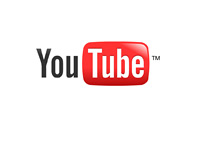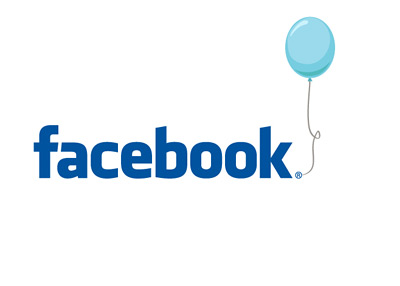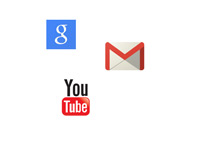Youtube's Traffic and Revenue Continues To Grow
 In October of 2006, Google announced that they would be purchasing YouTube in an all-stock deal.
In October of 2006, Google announced that they would be purchasing YouTube in an all-stock deal. The price? $1.65 billion.
At the time of the transaction, YouTube was Google's largest acquisition. Some people loved the deal at the time, while others hated it.
With their YouTube purchase, Google was betting that users would continue to migrate from television to the Internet, and that advertisers would continue to follow. They were right.
Detractors pointed to copyright concerns and the fact that YouTube was unprofitable as the two major reasons why Google's acquisition was foolish. How much money would Google have to spend on litigation as companies lined up to file copyright claims?
--
Fast forward six years to the summer of 2012.
According to Citi's Mark Mahaney, Youtube should generate $3.6 billion in gross revenues this year. After paying out Youtube's partners (we'll get to that in a second), net revenues should be around $2.4 billion.
Google's executives recently revealed that Youtube is, in fact, making the company money, but they won't reveal just HOW much the site is making.
Youtube's traffic continues to grow in leaps and bounds - according to comScore, Youtube's traffic is growing 20%, Quarter after Quarter.
Traffic has brought advertisers, and this has helped to swell Youtube's revenues. Google has introduced a number of new ad formats to Youtube, including Adsense, pre-roll video ads and more.
--
So how did Google help grow Youtube into one of the most valuable web properties in the world? Let's look at what they did.
First off, they introduced the Youtube Partner program. The Youtube Partner program allows individuals and companies to receive a cut of Youtube's ad revenue every time that one of their videos is shown. Mark Mahaney estimates that $1.2 billion will be paid out to Youtube's partners this year, which is a substantial amount of money. A number of video production companies have spawned in recent months that produce content exclusively for Youtube (Machinima, for instance, recently secured $35 million in funding). There are many individuals throughout the world who make their livings producing content for Youtube.
Youtube's Partner program rewards people for creating high quality, useful content that is their own. So, if somebody uploads their own 30 minute variety show, Google doesn't have to worry about any copyright issues, provided that the video doesn't have any content that doesn't belong to the user.
On the subject of copyrights - Google has implemented a system that allows companies to easily pull their content from the site. Want to pull one video from Youtube? Use the site's copyright infringement notification system. Need to pull videos on an ongoing basis? Use Youtube's Content Verification Program, or, even better, use Youtube's state-of-the-art technology called "Content ID" that automatically pinpoints videos that are infringing on copyrights, and have the videos blocked.
Users who repeatedly infringe the copyrights of a third party will have their accounts suspended or even terminated.
--
By "cutting in" Youtube's users and giving them a big piece of the pie, Google has created a monster that continues to grow every day. Google now has a virtual army of content creators who are creating and marketing their own content. Google sells more ads, Google makes more money, the content creators make money - everybody wins.
The $1.65 billion purchase price for Youtube is looking pretty reasonable now.
Filed under: Internet Companies



